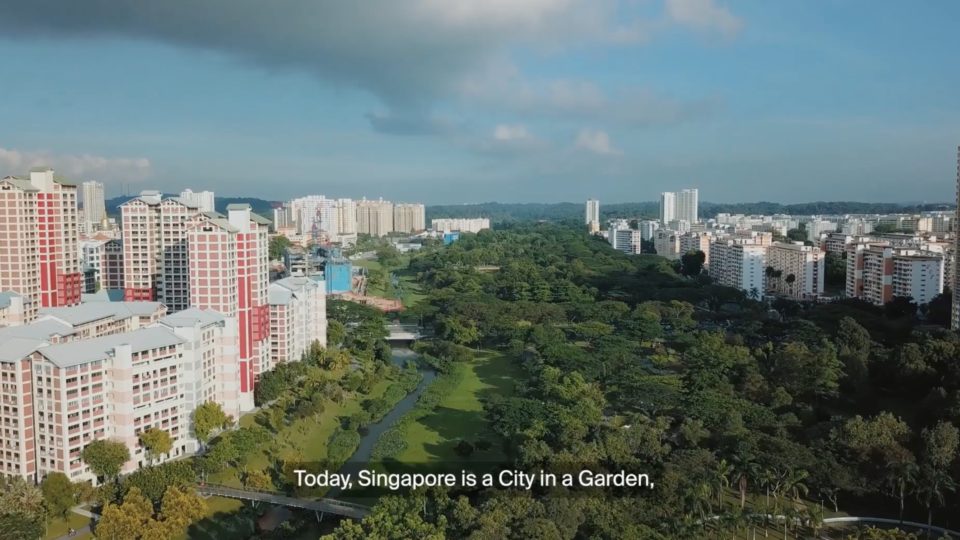Singapore today revealed lofty goals for becoming a greener country by 2030 such as planting a million trees across the island, increasing the use of electric vehicles, and restructuring the tax code to benefit the planet.
In addition to adding many more trees, Green Plan 2030 roughly 40 initiatives aim to create more nature parks and “protect nature reserves from urbanization.” The latest environmental blueprint is in line with the city-state’s commitments under the Paris Agreement and U.N. 2030 Sustainable Development Agenda.
“We will set aside 50% more land – around 200 hectares – for nature parks,” National Development Minister Desmond Tan said in a presentation video, adding: “Every household will live within a 10-minute walk of a park. We will plant one million more trees across our island, which will sequester another 78,000 tonnes of Co2.”
No attempt was even made to estimate a price tag for bringing the plan to reality.
The plan, announced ahead of next week’s budget announcement, was produced by five different ministries: transport, sustainability and the environment, education, trade and industry, and national development.
No specific details were given as to how the government plans to prevent urban expansion from encroaching into forests, with programs already underway to clear the 33-hectare Dover forest for housing projects and for the upcoming Cross Island Train line to run underneath the Central Catchment Nature Reserve. According to the National Parks Board, there are about two million trees along Singapore’s roads, parks, and state land.
Other than boosting greenery, the government also plans to promote cleaner energy with more electric vehicles or EVs. By 2030, it is targeting to increase electric vehicle charging points from 28,000 to 60,000 and making cleaner energy cars compulsory. It also plans to phase out vehicles using internal combustion engines by 2040. Just this week, the country approved Tesla for electric car sales.
Other initiatives include reviewing its carbon tax by 2023 and introducing a “tax structure” to make it easier to own an EV.
One of Singapore’s newest neighborhoods in the West known as Tengah might also have a “car-free” town center, “with roads constructed underground, freeing up surface spaces,” for other use including public transportation, according to Transport Minister Ong Ye Kung.
Other stories:
Thirsty Singapore juice sellers mix up juice with semen in raunchy marketing
TikTok’s hottest 1-year-old star is a skateboarding bird from Singapore




